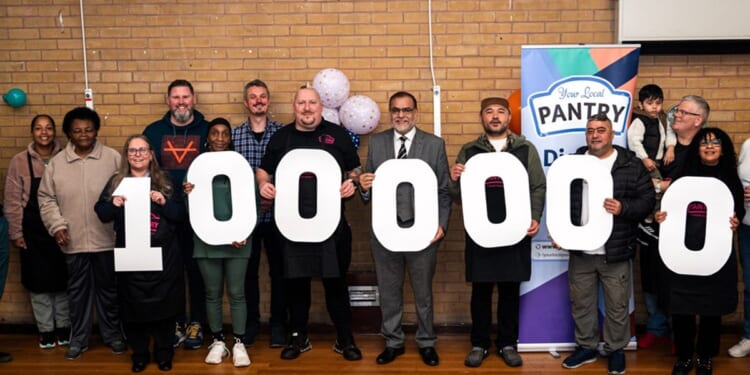PANTRIES are “real places of hope” which have saved thousands of families from reaching acute crisis point, new research concludes.
The findings, collated from surveys of food pantries nationwide, were published in a report on Tuesday of last week, as the UK Your Local Pantry network recorded its one millionth visit since its inception in 2013. In that time, it has supported 149,000 people in more than 120 neighbourhoods.
More than 3000 responses from food-club users were collected from parallel surveys, conducted between July and September 2025, by Your Local Pantry, Community Shop, Feeding Britain, UKHarvest, and Family Action. Findings were also drawn from a December 2024 survey of 9491 respondents organised by the charity The Bread and Butter Thing.
Your Local Pantry is a network of 120 food hubs, coordinated nationally by the charity Church Action on Poverty.
Residents can join a pantry as a member for access to quality groceries in return for a nominal fee per visit, typically saving £27 per shop. Nationally, pantries are estimated to have saved members £6.9 million over the past 12 months.
The surveys, combined, report that 97 per cent of members were able to afford more balanced meals; 83 per cent felt less stressed about running out of food; 82 per cent felt more connected to their community; and 75 per cent ate more fresh fruit and vegetables.
Rising food costs and energy bills, a welfare system that is “complex and difficult to navigate”, and “chronic” low wages mean that even full-time employment does not guarantee financial security, the research says. While foodbanks, it finds, have emerged as the default response over the past decade, communities are beginning to embrace the pantry model as an alternative.
Data from the Food Standards Agency suggest that, for two successive years, a higher proportion of people have used food clubs than have used foodbanks.
“Food clubs represent one of the most promising place-based approaches to tackling hunger in the UK. They reach people in acute need without stigma or referral, and act as a preventative model for those at risk of hunger,” the research concludes. “They can and must form part of a multi-layered strategy to eliminate hunger from the UK, demonstrating that affordable, nutritious food can be a vehicle for transformation, not just survival.”
James Henderson, a Your Local Pantry co-ordinator, said: “Pantries are no substitute for economic justice — the Government needs to step up and ensure everyone has an adequate income to live on. But, while we press for national change, membership food projects are incredibly transformative. Councils, faith groups, or anyone else would struggle to find a better way to invest and support communities.”
One survey respondent said simply: “It means that I have been able to eat from month to month.”

















